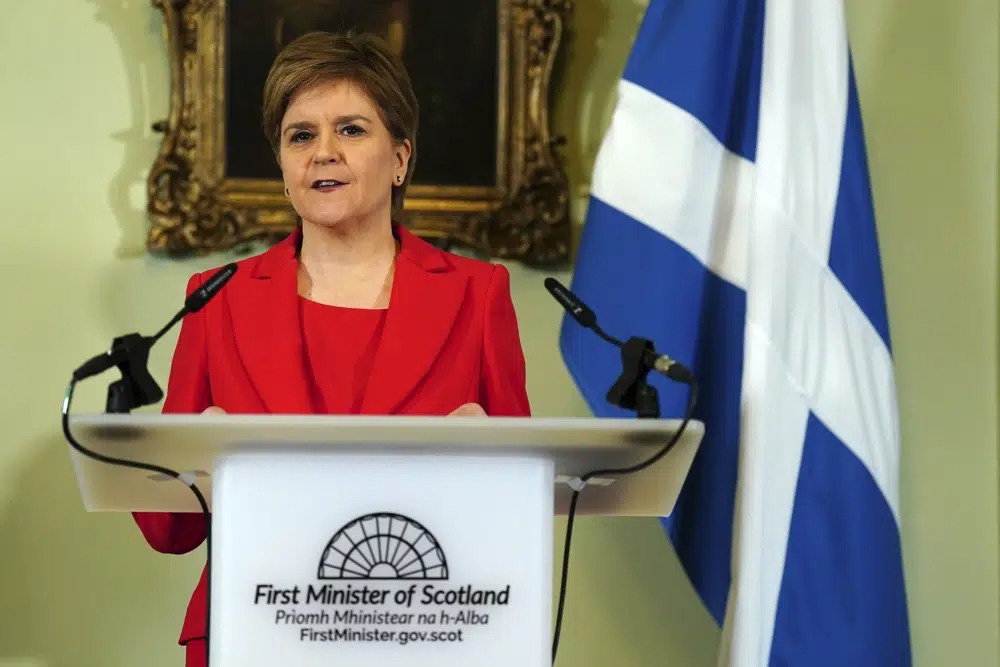Scottish leader Nicola Sturgeon, the face of her country’s independence movement for eight years, has announced her intention to resign, amid criticism of her drive to make it easier for people to legally change genders.
Sturgeon made the announcement Wednesday during a news conference at her official residence in Edinburgh, saying that part of serving well is knowing when to make way for someone else.
“In my head and in my heart I know that time is now,” she told reporters. “That it’s right for me, for my party and my country.”
Sturgeon, 52, has led Scotland since 2014, when Scots narrowly voted to remain part of the United Kingdom. While the referendum was billed as a once-in-a-generation decision on independence, Sturgeon and her Scottish National Party have pushed for a new vote, arguing that Britain’s departure from the European Union had changed the ground rules. The U.K. government has refused to allow a second referendum.
The first female leader of Scotland said that she had wrestled with the decision to leave, and that it was “not a reaction to short-term pressures”.
“Of course there are difficult issues confronting the government just now, but when is that ever not the case?″ she said.
The announcement caught political observers by surprise amid her staunch support for both independence and legislation that would make it easier for people in Scotland to legally change genders.
Hailed as a landmark by transgender rights activists, the bill would allow people age 16 or older in Scotland to change the gender designations on identity documents by self-declaration, removing the need for a medical diagnosis of gender dysphoria.
While the Scottish parliament approved the legislation, it has been blocked by the British government because it would present problems for authorities in other parts of the U.K., where a medical diagnosis is needed before individuals can transition for legal purposes.
Sturgeon has vowed to take the British government to court, arguing that Prime Minister Rishi Sunak’s administration had made a “profound mistake” by vetoing the legislation.
Some members of the SNP have criticized Sturgeon for saying she would make the next Scottish parliament election a de facto referendum on independence. The party is set to hold a conference on the strategy next month, with some members saying it won’t work and others criticizing Sturgeon for waiting too long to press ahead.
The gender recognition bill also faced opposition from some members of the party who said it ignored the need to protect single-sex spaces for women, such as domestic violence shelters and rape crisis centers.
Scotland remains part of the U.K. but, like Wales and Northern Ireland, has its own semi-autonomous government with broad powers over areas including health care.
(AP)












2 Responses
another place in the world that will disappear
good riddance